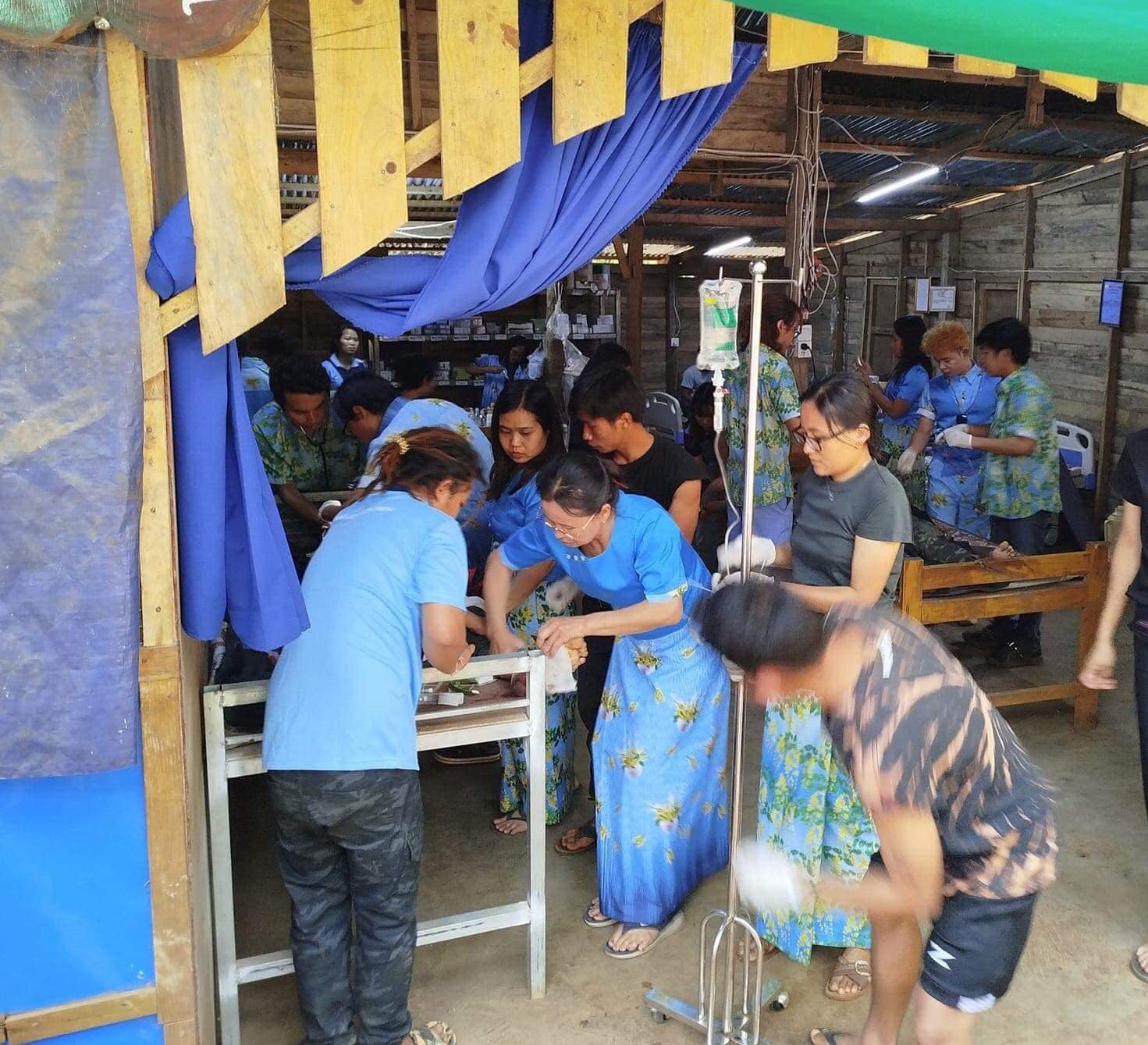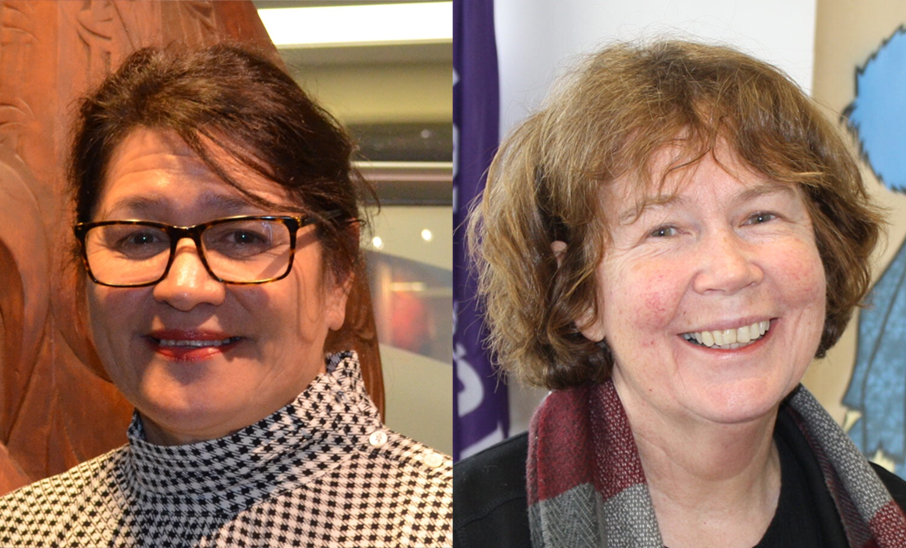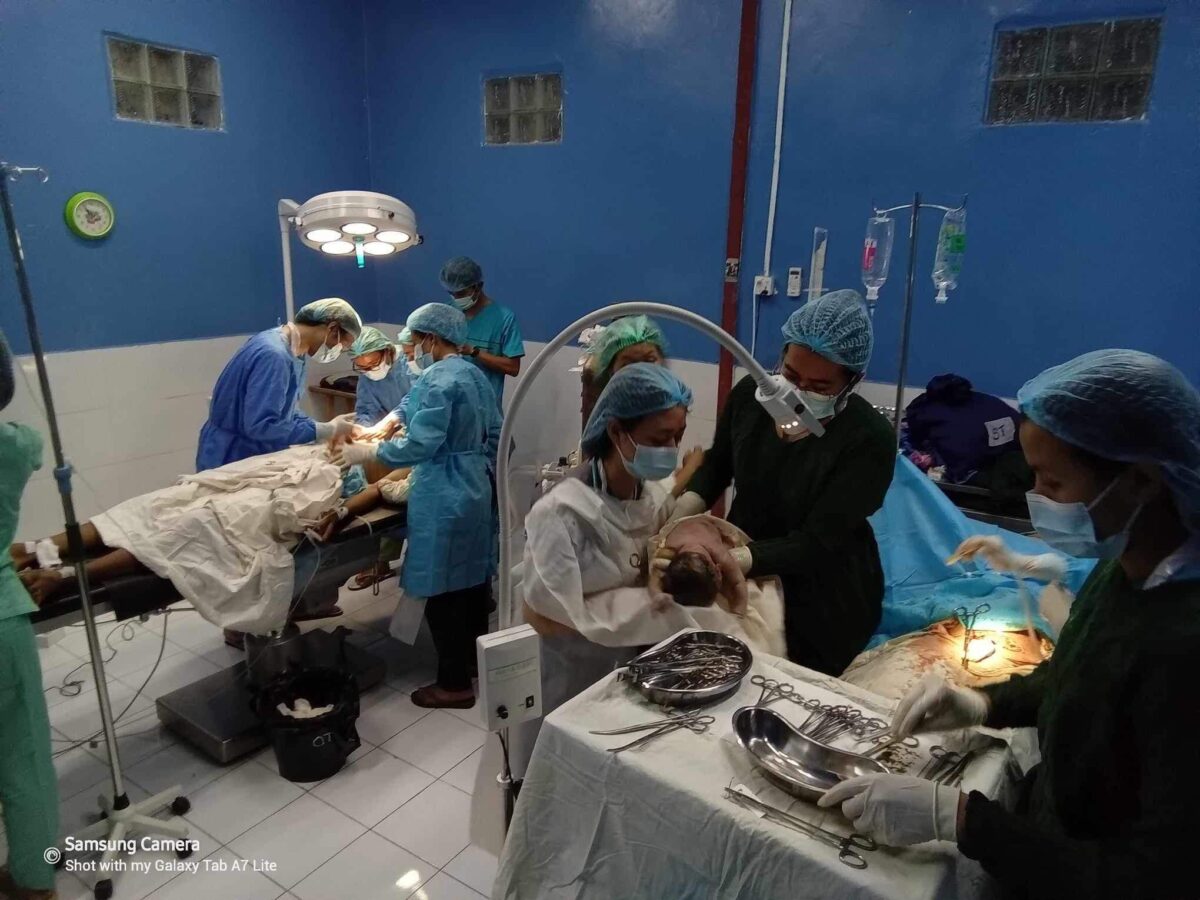On February 1, 2021, this man’s world changed forever. The Myanmar military took over the country in a coup and everyday people like him faced an uncertain future.
Suddenly, even offering his name came with personal security concerns.
The young doctor spoke to Kaitiaki as leader of a project to build a sustainable health-care workforce in a conflict-torn corner of Myanmar — now fully-funded by a $35,000 grant from Tōpūtanga Tapuhi Kaitiaki o Aotearoa — NZNO.
Back in 2021, the first professionals to oppose the coup were health-care professionals, he said.
After a year on the frontline against Covid, where just taking oral swabs from patients was dangerous, they were angry to then have the country taken over by the military.
They joined the nationwide civil disobedience movement — where more than 80 per cent of the health-care workforce, nurses, health-care assistants and doctors went on strike, Thant Zin said.

“After the crackdown, when the military started shooting people, still we continued our strike up to June, July, 2021,” said Thant Zin.
In that year after the coup, according to Human Rights Watch, the military killed more than 1500 people in a violent crackdown on resistance.
Many of the striking workers never returned to their old positions. Some stayed on in the civil disobedience movement: volunteering to work in regions like Karenni state, Thant Zin said.
After the crackdown, when the military started shooting people, still we continued our strike up to June, July, 2021.
Karenni state, in eastern Myanmar on the border with Thailand, has seen intense conflict since the coup. About 90 per cent of the state remains out of military control, he said. Governance is fractured, thousands of locals are displaced, and civil disobedience movement workers often don’t speak the local languages.
It’s now the monsoon season in Karenni state, so health-care workers are dealing with dengue fever and influenza and flooding — seasonal events, but not the only challenges.

“There are more challenges. First there’s the airstrikes, they are more frequent these days, the airstrikes by the military.”
If there’s one upside, he said, it’s that the region borders Thailand — making it difficult for the military to attack without infringing the border. “But because the conflict is scattered everywhere, it blocks transportation routes, it’s so difficult to get the medical supplies and also teaching materials.”
There’s demand for emergency and trauma care for those wounded in the conflict, but health-care workers are trying to focus on primary care too, he said.
First there’s the airstrikes, they are more frequent these days, the airstrikes by the military.
“Those areas have been ignored so there are more re-emergences of TB and malaria. There is also a lack of vaccinations.”
Frozen international aid has only made training more difficult. Despite this, local networks established the Karenni Medical College and a small hospital. Here there are only a handful of teachers, nurses, and administrative staff available.
Building a health-care workforce in a conflict zone
International development agency UnionAID — created through New Zealand’s unions — approached NZNO with the proposal for the project.
Its primary goal is to boost and upskill the local health-care and medical workforce — with initiatives including recruiting international medical and nursing experts to volunteer as teachers and engaging with students through online learning.

It would create a centre of excellence with accreditation and degrees for Karenni nurses and doctors.
And, it would mean that even if the civil disobedience movement volunteers leave, the locals can continue the services.
NZNO kaiwhakahaere Kerri Nuku said backing the project was about reaching out and helping those in need – part of a responsibility as global citizens.
Nobody should live in situations like the military control in Myanmar, she said.
“We can’t look at health as a one-dimensional thing. We’ve got to look at its broadest freedoms, and as an organisation we’ve got to show our commitment to that.”

NZNO president Anne Daniels said it was no surprise the board supported the project given the political situation in Myanmar.
“They don’t actually have a thing called democracy, but they well and truly have a thing called oppression.”
This project thumbed its nose at that kind of oppression, she said, while supporting people to stand up for themselves, and improve their own health and wellbeing.
‘Maybe tomorrow there will be change’
Thant Zin, currently not in the state, said he felt a responsibility to help because of the opportunities he’d had in his own life.
He came to New Zealand in a six-month young leaders programme run by UnionAID back in 2017, so he had a taste of what stable government was like.
“We don’t have that, we used to have that — just a tiny window — I got a lot of opportunity as a young leader but the current generation, they deserve it.”
The young people will be the ones joining and ultimately running the health-care services. Thant Zin said he wanted to help these new generations.
“They want to create a better future for themselves and also the next generation. The older politicians don’t see the future sometimes — they even miss the present — but I think things will change eventually.”
- The project is a collaboration between civil disobedience movement nurses and midwives networks, the University of Medicine Magway Alumni Association and Karenni doctors’ networks. They previously established the Karenni Medical College and a small hospital.



